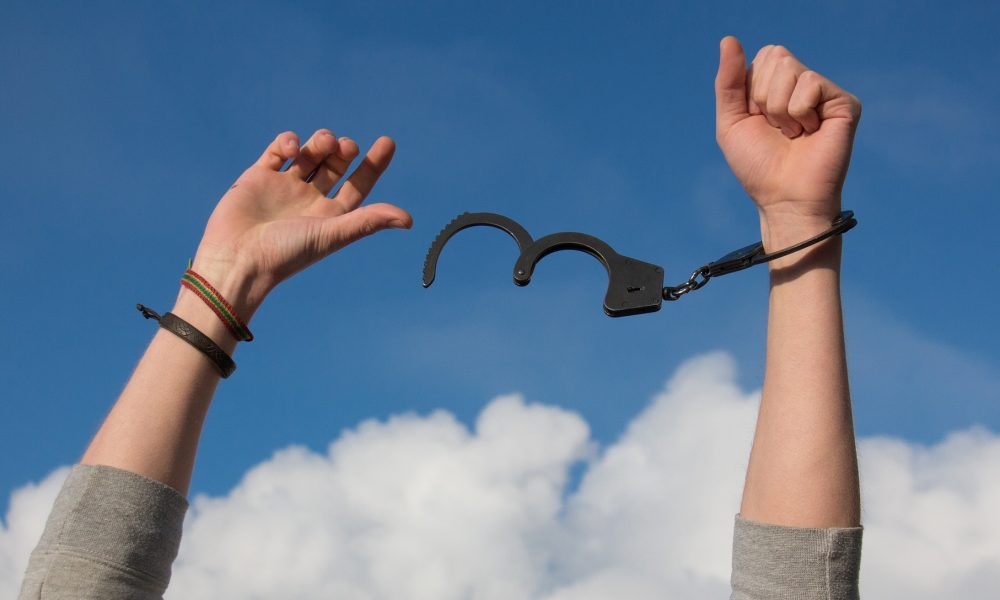Lawmakers in Massachusetts and New York have filed bills to broadly decriminalize currently illicit drugs in the interest of treating substance misuse as a public health, rather than criminal justice, matter.
There’s been significant interest in drug policy reform in state legislatures across the country this session, with a slew of marijuana and psychedelics measures introduced in the first weeks of 2023, for example. Now, legislators are seeking to stop criminalizing people over drugs altogether.
In addition to the new Massachusetts and New York bills, Washing State lawmakers have also signaled that they will be taking up the issue of decriminalization this year ahead of the expiration of a temporary criminalization policy instituted in the wake of a state Supreme Court decision that invalidated the state’s felony law against drug possession. So far, the only bills that have been formally filed in the 2023 session would maintain criminalization, however.
Here’s what the two new decriminalization bills would accomplish:
Massachusetts
A bill from Rep. Samantha Montaño (D) would amend state statute by eliminating and replacing a section that currently prescribes criminal penalties for drug possession.
Instead of fines and possible jail time, people who are found to be in possession of an illegal drug would be “subjected to participating in a needs screening to identify health and other service needs, including but not limited to services that may address any substance use disorder and mental health conditions, lack of employment, housing, or food, and any need for civil legal services.”
“The screening should prioritize the individual’s self-identified needs for referral to appropriate services,” it says. “The screening shall be conducted by individuals trained in the use of evidence-based, culturally and gender-competent trauma-informed practices.”
Citations would be dismissed for anyone who provides proof that they completed the screening within 45 days of the offense.
Drug policy reform advocates are generally skeptical about forced treatment, but the proposal would only mandate a screening that may identify opportunities to enter into some kind of rehabilitation or address underlying socioeconomic factors contributing to substance misuse.
“Completion of the screening shall not be deemed an admission of any kind and no legal findings shall be made based on the issued citation,” the bill says.
Separately, bicameral Massachusetts lawmakers recently filed a measure to legalize a series of psychedelics for adults 18 and older in the state.
—
Marijuana Moment is tracking hundreds of cannabis, psychedelics and drug policy bills in state legislatures and Congress this year. Patreon supporters pledging at least $25/month get access to our interactive maps, charts and hearing calendar so they don’t miss any developments.![]()
Learn more about our marijuana bill tracker and become a supporter on Patreon to get access.
—
New York
In New York, Sen. Gustavo Rivera (D) filed a bill late last week that would eliminate criminal and civil penalties for drug possession while also creating a task force that’d be responsible for studying and making recommendations about additional reforms.
A justification memo attached to the legislation emphasizes that substance misuse is widely considered a health condition, yet “New York and other states have continued to treat drug use as a moral failing and as a crime, thereby stigmatizing and incarcerating millions of people for having a disease.”
“Such treatment stands in stark contrast to how society and government treat individuals suffering from other diseases, such as cancer or an anxiety disorder,” it says. “While individuals with these other illnesses are usually seen as worthy of compassion, support, and medical care, those with an SUD are disparaged, criminalized, and treated as undeserving of assistance and compassion.”
The memo goes on to describe the inefficacy of criminalization in curbing drug use and racial disparities in enforcement of prohibition.
“Instead of preventing use, these laws have devastated individuals, families, and communities. Treating substance use as a crime disrupts and destabilizes the lives of individuals who use drugs. It contributes to an increased risk of death, the spread of infectious diseases, mass incarceration, the separation of families, and barriers to accessing housing, employment, and other vital services. It does all of this at a huge financial cost, through increased spending on the criminal legal system, the child welfare system, the health care system, the shelter system, and others, as well as through reduced productivity and employment.”
Meanwhile, other states and countries like Portugal have embraced decriminalization, and beyond helping to destigmatize addiction, data indicates that the policy is associated with lower rates of overdose deaths, the lawmakers said.
“For far too long, New York, together with the rest of the US, has made enforcement the central component of its response to drug use. It has continued to do so long after it became obvious that these highly costly policies had failed to achieve their stated goal—preventing the use of illicit drugs,” the memo says.
The bill itself includes a legislative findings section stating that criminalizing people over drugs “causes significant harm to individuals who use drugs by disrupting and further destabilizing their lives.”
“The purpose of this legislation is to save lives and to help transform New York’s approach to drug use from one based on criminalization and stigma to one based on science and compassion, by eliminating criminal and civil penalties for the personal possession of controlled substances,” it says.
The legislation would make a series of amendments to state statute to achieve that goal, including by replacing the word “criminal” with “unlawful” with respect to possession offenses.
A person who commits a simple possession violation would no longer face a misdemeanor conviction; instead, they could either pay a $50 fine or participate in a “needs screening to identify health and other service needs, including but not limited to services that may address any problematic substance use and mental health conditions, lack of employment, housing, or food, and any need for civil legal services.”
Like the Massachusetts bill, the measure stipulates that screenings “should prioritize the individual’s self-identified needs for referral to appropriate services.” And it also gives 45 days to complete the screening in order to have the the fine waived.
“Failure to pay such fine shall not be the basis for further penalties or for a term of incarceration,” it clarifies.
Additionally, the bill calls for the establishment of a “drug decriminalization task force” that would be responsible for developing “recommendations for reforming state laws, regulations and practices so that they align with the stated goal of treating substance use disorder as a disease, rather than a criminal behavior.”
Members of the task force would need to study amounts of drugs that should constitute personal possession, barriers to accessing services for people with substance use disorders, recommendations for additional policy reform and promoting treatment, harm reduction programs and more.
Key officials including the state health commissioner would be part of the panel, in addition to others appointed by the governor and legislative leaders. They would need to produce a report with initial findings within one year of the bill’s effective date.
Separately, the governor of New York announced last week that the state’s second adult-use marijuana retailer—which will also be the first to be owned by a person previously criminalized over cannabis—will open on Tuesday.
Also, New York lawmakers recently pre-filed a bill for 2023 to legalize certain psychedelics like psilocybin and ibogaine for adults 21 and older.
In Washington, state lawmakers are also again considering drug possession penalties and related issues this session.
Following a state Supreme Court decision in February 2021 that invalidated the state’s felony law against drug possession, lawmakers enacted a temporary criminalization policy that is set to expire on July 1. Some lawmakers want the state to formalize a policy of decriminalized possession, but others want to maintain criminalization.
Meanwhile, the Minnesota Medical Association (MMA) recently endorsed broad drug decriminalization, expungements for low-level possession and the promotion of statewide harm reduction programs.
Oregon voters took the historic step of decriminalizing possession of all drugs at the ballot in 2020—and a poll released in September shows that the policy continues to enjoy majority support in the state.
Nationwide, a strong majority of Americans, including most Republicans, support drug decriminalization, according to a poll released last year. There’s also majority support overall for allowing the operation of overdose prevention centers where people can use illicit substances in a medically supervised setting and receive treatment resources.
Support for the decriminalization proposal increased by 10 percentage points overall since voters were asked about it in 2021 with a different question in a prior Data for Progress poll.
Nora Volkow, director of the National Institute on Drug Abuse (NIDA), has said that the ongoing criminalization of people over drug use needs to end in order to effectively address substance misuse and the stigmatization of addiction.
Minnesota Governor Proposes Marijuana Legalization And Expungements Funding In Budget Request
Read the full article here


